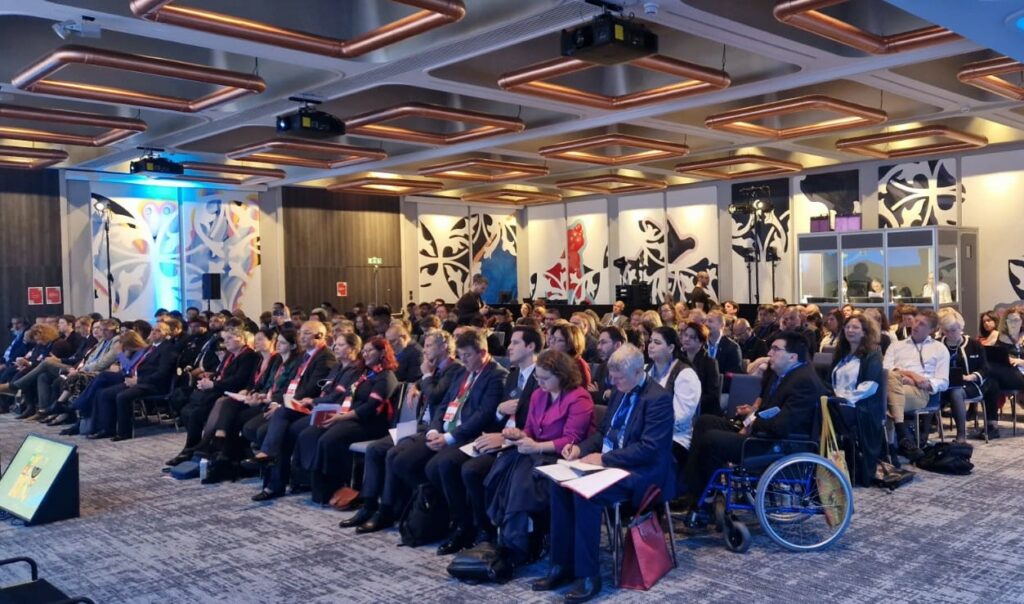The planned structure of the new Commission has raised concerns about the overlap of competencies and insufficient resources in important policy areas such as policies for Equality and against discrimination. The outgoing Belgian foreign minister Hadja Lahbib was given the double portfolio of Preparedness-Crisis Management and Equality.
Besides her many other tasks in crisis management, Lahbib is expected to develop several Equality policies, including a road map for women’s rights, a new gender equality strategy, a new anti-racism strategy, implementation of rights belonging to minorities and people with disabilities. She is also expected to spearhead the strategy for Roma rights.
European and national equality civil society networks and organisations have reacted to the diverse portfolio given to her. In a recent open letter to President von der Leyen initiated by the European Roma Grassroots Organisations (ERGO) Network, 57 organisations across the Europe protested against the downgrading of the Equality portfolio.
The shift from Equality being a stand-alone portfolio to now being combined with Crisis Management and Preparedness under the same Commissioner poses a significant risk that the latter will be prioritised to the detriment of the former. Given crises' urgent and often overwhelming nature, we fear that equality issues will be sidelined in favour of crisis management.
This new configuration risks undermining the consistent and diligent implementation of the Equality agenda, as crises like pandemics, wars, and economic or environmental disasters will likely dominate the Commissioner’s time and focus. Recent years have shown that crises can easily overwhelm even the most dedicated officials.
Despite the ambitious goal of building a Union of Equality, the mission letter fails to grant the Commissioner-designate a broad mandate to lead the fight against structural and intersectional discrimination or to advance anti-discrimination legislation.
There can be no true 'Union of Equality' unless the Commission takes action on age discrimination alongside other ground. The complete omission of age discrimination as a ground for action under EU treaties marks a step backwards from the previous Commissioner’s mandate.
We are also concerned by the lack of long-term consideration of gender equality based on collective values, knowledge and behaviours acquired through education and life-long learning.
The integration of the two portfolios risk sidelining essential efforts to uphold the rights of all children, including those facing unique vulnerabilities due to their circumstances, such as children with disabilities, Roma children and children with a migrant background.
The mission letters for the Commissioners-Designate show also a worrying disconnect between equality and key areas like democracy and justice, sidelining protections for LGBTI people, especially trans refugees, who face heightened risks to their fundamental rights.
Integration of Roma
For the integration of Roma in society, the downgrading of equality does not bode well at a time of increased political uncertainty and concern regarding the future of Roma rights within the EU. The Roma lack representation in the newly elected European Parliament. In the Member States, there is a backlash towards far-right policies and populism.
In this political climate, and with Equality tacked onto crisis management, efforts to address antigypsyism, racism, and intersectional discrimination against Europe’s racialised minorities will likely be overshadowed or significantly diminished.
The implementation of the EU Roma Framework was already problematic before these significant political changes took place, as illustrated by the recent report by the Commission evaluating the implementation of national Roma frameworks, covering the period until June 2023. The report highlighted severe deficiencies in Member States' actions.
While it outlines improvements in these frameworks since their adoption in 2021/2022, it lacks concrete examples of meaningful progress in priority areas, particularly in addressing antigypsyism.
The report indicates a troubling lack of substantial action against the systemic racism faced by Roma communities.
Segregation in education and housing is acknowledged but treated separately, indicating a fragmented strategy for tackling these complex challenges. Furthermore, the European Commission’s guidance appears disconnected from the realities faced by Roma communities, failing to address crucial issues such as hate speech, racist violence, and lack of representation.
While the ERGO Network wholeheartedly welcomes the presence of a woman with a minority background as Commissioner, we are very much concerned about the merging of the Equality portfolio with issues that have nothing in common and the political message this sends to both Member States and EU citizens.
Together with other equality-focused networks and civil society organisations, the ERGO Network calls on the European Commission to ensure that Equality remains a central priority in the EU’s work. We urge President von der Leyen to reaffirm the EU’s commitment to the Union of Equality and equip the Commissioner-designate with the resources and capacity needed to fulfil this role effectively.


